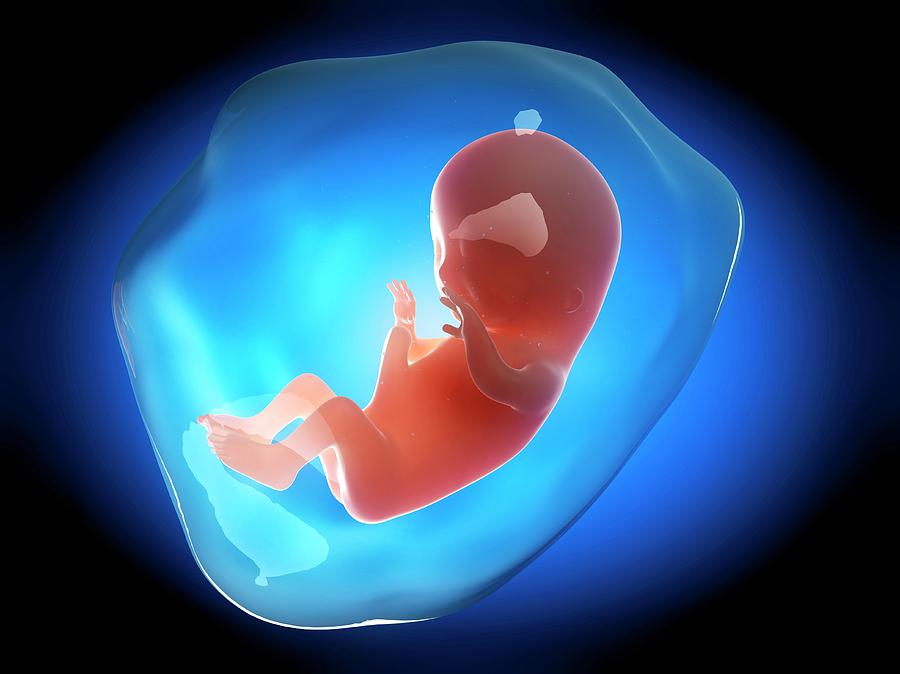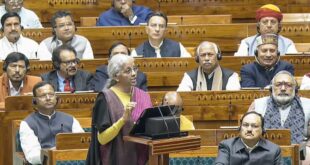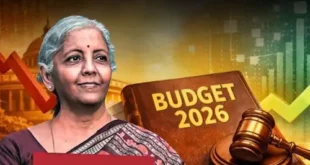Seema Javed
A climate lawsuit has been filed in which children” under the age of five are the main claimants. Sixty-two babies and children, including a 20-week-old fetus, are claimants.
Their counsel claims that the Korean-government’s statutory target of 2030 Nationally Determined Contributions (NDC) infringes the constitutional rights of these “babies”.
On June 13 (Monday), the counsel of the ‘Baby Climate Litigation’ filed a constitutional claim in a South Korean court on the grounds that the nation’s greenhouse gas emission reduction target is inadequate and, as such, breaches the protection of the basic rights of babies that is enshrined in the Constitution. The 2030 target of reducing greenhouse gas emissions by 40% stipulated in the Enforcement Decree of the Framework Act on Carbon Neutrality is unconstitutional and cannot guarantee basic rights for future generations.

Sixty-two babies and children who will suffer the most from the national greenhouse gas reduction targets specified in the enforcement decree are the direct claimants of the lawsuit. 39 babies under the age of 5 accounted for the majority, and 22 children aged 6 to 10 are also named as claimants. A 20-week-old fetus nicknamed Woodpecker is the leading claimant of the lawsuit.
The Korean Constitutional Court has acknowledged the ability of the fetus to file a constitutional petition in past complaint cases, noting, “All humans are the subject of the constitutional right to life, and the right to life should be recognized even for the fetus being formed.”
Kim Young-hee, a lawyer at the Sunflower-Korean Association of Lawyers Against Nuclear Power Plants and a leading lawyer of the Baby Climate Litigation group, said, “The 58 claimants of the baby climate lawsuit are the youngest among the current generation. Since most of the allowable carbon emissions have already been exhausted, the younger generation is the most vulnerable and damaged and is expected to bear the biggest burden from climate change.” She added,
“This lawsuit calls for babies, not parents, to become petitioners of the Constitution, protesting that the nation’s greenhouse gas reduction target violates the rights and freedoms from the perspective of the youngest generation and that the state’s goal is unconstitutional.”
According to a study cited in the petition by the Baby Climate Litigation, if global temperature rises are limited to 1.5℃, the carbon emission capacity of people born in 2017 will be reduced by one-eighth compared to the amount that people born in 1950 were able to emit. This means that the younger generation will be in a situation where they must reduce carbon emissions much more rigorously in the future than we do now. Lee Dong-Hyun, the caregiver of two claimants; Woodpecker and a six-year-old child, said, “I am proud every time a 20-week-old fetus moves in my belly, but I feel sorry and regretful that this child who has not emitted even a gram of carbon dioxide has to live with the current climate crisis and disaster.” He added,
“While individual practice is important for carbon reduction, the government has a greater role and responsibility than individuals. But the current greenhouse gas reduction targets are too passive and irresponsible, so I participated in the Baby Climate Lawsuit to protect children’s basic rights.”
Starting with the constitutional petition filed in the 2020 Youth Climate Action, this baby lawsuit is the fourth climate lawsuit filed in Korea. Although the legal provisions raised in question through the four cases mentioned are different, they are all the same in the sense that they have pointed out that the greenhouse gas reduction target set by the government in the bill violates the obligation to protect the basic rights of people and babies and their right to pursue happiness. The most significant difference in this lawsuit is that the youngest generation, which can be the most affected by climate change, is the claimant.
The Baby Climate Litigation is similar to the Urgenda litigation in the Netherlands or the climate lawsuit filed in Ireland because it claims that the government should actively reduce greenhouse gas emissions. This case is also in line with a German climate lawsuit since it asserts that Nationally Determined Contributions (NDC) for 2030 stipulated in the country’s Framework Act on Carbon Neutrality are not sufficient to protect the rights of future generations.
Also Read : This Years G7 summit takes place against the backdrop of a growing hunger crisis
Both the Netherlands and Ireland ruled that the government’s efforts to reduce carbon emissions were insufficient. Last year, the German Federal Court of Justice also ruled that Germany’s climate change legislation was insufficient to protect future generations’ rights. However, the Constitutional Court of Korea is yet to make any ruling.
“Adults say they will protect the Earth for us, but it doesn’t seem to have much to do with our future,” said 10-year-old Han Je-ah, who has participated in the Baby Climate Litigation as a claimant. “Instead of passing it on to children, adults need to cut carbon emissions a lot more right now.”
Namgung Soo-jin, the caregiver of two children and an elementary school student and kindergartener who participated as claimants in the baby climate lawsuit, said at a press conference, “When my children ask about the lawsuit, I explain that I’m worried that if we keep hurting Planet Earth as we do now, there may be another disease like Covid-19 or we might not be able to see the animals and plants around us any more.” She added, “I participated in the litigation with the idea of doing anything I can do with my children so that the grown-ups wouldn’t be ashamed of ourselves.”
Also Read : Undeniable influence of climate change on excessive rainfall and flooding across the Indian borders
The Baby Climate Litigation Group held a press conference in front of the Constitutional Court, holding a placard with the message “Save the Earth, Baby Climate Litigation.” It was stressing that the current generation should take responsibility and act on behalf of future generations. They also had a performance where the children attached green paper-leaf shapes to a blue ball symbolizing the Earth.
 Jubilee Post News & Views
Jubilee Post News & Views





